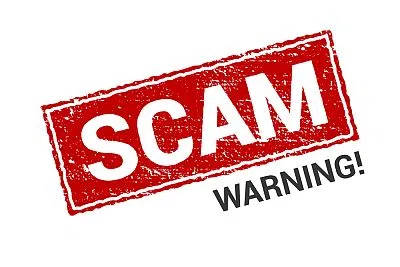
(Jasper, IN) – Recently the Indiana State Police Jasper District has received multiple complaints from citizens stating they believe they have been a victim of a scam. Once the money is made available to the scammers, the victim’s chances of getting it back are very slim. “A lot of these scams are pretty much untraceable or come back to overseas organizations where the extradition is just not going to happen.
The “pig butchering scam” is a common online scam in which fraudsters convince victims to invest in fake cryptocurrency exchanges that supposedly yield huge returns. They may even allow you to withdraw a small amount of your “earnings” to get you to invest more. On Facebook, cybercriminals may hack your friends or followers’ accounts to make the scam seem legitimate. Ultimately, any money you give to the exchange will be lost to scammers.
Romance scams occur when scammers create fake personas and then reach out to you over Facebook Messenger, dating sites, or other social media platforms and try to start a romantic relationship. These scams take days or even weeks to play out, but the consequences can be devastating. After the scammer has gained your trust, they ask you to send money and then disappear once you do.
You get a call, email, or letter saying you won a sweepstakes, lottery, or prize: like an iPad, a new car, or something else. But you know it’s a scam because of what they do next: they ask you to pay money or give them your account information to get the prize. If you pay, you’ll lose your money and find out there is no prize.
They will say you have an outstanding warrant for your arrest and you need to send them money or you will be arrested. THIS IS A SCAM. No Sheriff’s Office or Police Department will call you requesting money. Also, they will not threaten to arrest you if you don’t give them money.
This is a common Facebook Messenger scam designed to play on your curiosity. You receive a message; usually from someone on your friend’s list about a photo or video that you’re supposedly in. They provide a link; but if you click on it, you’re taken to a fake website that asks for login details or infects your device with malware. These are only examples of some of the current scams we are receiving. There are multiple schemes where scammers are getting money fraudulently from citizens. If you suspect you’ve been scammed, immediately contact your bank or financial institution to report potential fraud, freeze any affected accounts, and try to stop any ongoing transactions; then, report the scam to the appropriate authorities like the Federal Trade Commission (FTC) online or by phone, and consider placing a credit freeze to protect your identity if necessary. If you are asked to send large amounts of cash, withdraw cash for pickup, or use gift cards for payment it is a scam. |



Comments